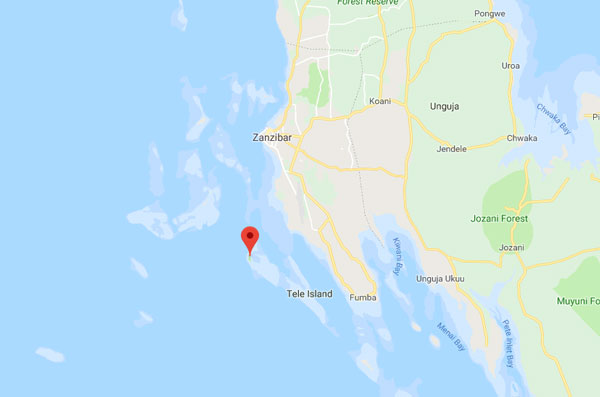Absolution- Off to Africa with Paul Hardisty
Paul Hardisty writes some of the most complex and thrilling novels set in some of the most challenging places in the world. The latest, set in Africa, and on a smal island of the coast of Zanxibar takes the reader back into the dark centre of Clay Straker’s world…
BookTrail Absolution
So, the story of Straker…
Clay has fled South Africa after testifying to Desmond Tutu’s Truth and Reconciliation Commission. It did not go well, and those his testimony incriminated want him dead. In his sailboat, Flame, he sails north along the African coast. At the start of Absolution, the fourth instalment in the series, we find Clay on a remote island off the coast of Zanzibar. He dares to think, after months of quiet, that he has finally disappeared. But that illusion is shattered when the family he has befriended there is murdered as he watches. Meanwhile, Rania, the love of his life, married and living in Paris, comes home from work to find that her husband, a high profile human rights lawyer, and her young son, have disappeared. The fuse is burning and off we go.
Setting…
All of the Straker novels are set in places that I know well, in which I have worked and travelled. Many of the situations are autobiographical and all are placed within real events of the time. Good fiction, for me requires a number of things, but one is immediacy – the ability to take readers immediately to a place and a situation, to put them right in the middle of it, so they can see and hear and smell and feel it all. Place is an essential part of creating that immediacy.
BookTrail Absolution
Research?
Much of what I have written about in the Straker novels I have not needed to research – I have lived the events, been to the places. Over the years of work and travel I have kept journals and notes, and occasionally I will refer back to those. I do supplement this with some research to get the dates, times and places of key historical events right. Absolution is set in Egypt mostly, where I worked for many years. Once of the central themes of the book is a subject I worked on for some time while in Egypt. I also travelled back to Egypt last May and spent a couple of weeks travelling around the country on my own, staying in local places, practicing my Arabic, going to the places I was writing about, trying to get them just right.
Personal experiences…
Over the years, my work as an engineer and environmental scientist has taken me to places where there are problems. I have seen some bad stuff. Environmental and social problems are often associated with, and in many cases drive, social upheaval, strife, conflict and civil war. I go to places to try to help. Do it long enough and you can’t help getting caught up in events and situations. I have been lucky, in the sense that I haven’t been hurt, and have met some great people along the way. I write about it, I guess, so that it doesn’t all sit inside and eat away at me.
Transporting the reader…
To me, realism is important. To get that, I think the writer has to transport the reader to the time and place, and right into the action. That means engaging all the senses. What can you see, hear, taste, smell, and feel? Those need to be layered quickly. Here, it is especially important not to tell the reader, not to dictate, but to provide a layered set of physical evocations. The grit between your teeth. The sweat stinging your eyes. That initial hot recoil when you first get hit. The jagged landscape your tongue explores over broken teeth, and the way your eyes tighten up as your face swells up from the broken bones. That ferric taste of blood matching the shrieks you hear in your head as you fight to stay standing. All of it.
BookTrail Absolution
The story behind the story
On this last trip, I asked my Egyptian friends to tell me a lot more about the real situation in Egypt, about who really runs the place, and how that has changed or not changed over the last few years. What really surprised me was the depths to which society and business there is actually controlled in the shadows. It became a much bigger part of the book than I had originally intended.
The world is a crazy place. I guess it always has been. But our sheer numbers, our technology, and our reach into every single corner of the planet, no matter how remote, means that there is now no escaping the madness. Looking at this place, and at people, as an outsider, watching what we do to our home and to our fellow people and the creatures we share the planet with, you could only conclude that we are insane. It is one of the core themes of Absolution, and the whole Straker series: how to stay sane in a world gone crazy.
Zanzibar is a great, and unusual place to visit. Chumbe is a tiny island run as a private park, protecting the island’s unique biodiversity and the beautiful coral reefs that surround it. Northern Somalia is hard to get to, and dangerous, but you can get in. There are some fantastic ruins in Dongola. The City of the Dead, under the Moqqatam cliffs in Cairo, gets its name because this huge cemetery has become home to over half a million of Cairo’s poorest. The area is also home to the zabaleen, Cairo’s underclass of garbage pickers. It is a fascinating and off-beat place to visit in this incredible city. Hatshepsut’s temple, on the western bank on the Nile, is one of the most famous of the ancient Egyptian monuments. If you go to Luxor, stay in one of the small local pensions on the west bank and take the ferry back and forth to the main town. Much better than the big hotels.
I visited most of the Egypt locations just last year specifically for the book. Other places I have visited at various times over the past two decades of living and working in the region.
Many thanks Paul, what a fascinating account of the story behind the story!
BookTrail Boarding Pass: Absolution
Twitter: @Hardisty_Paul








